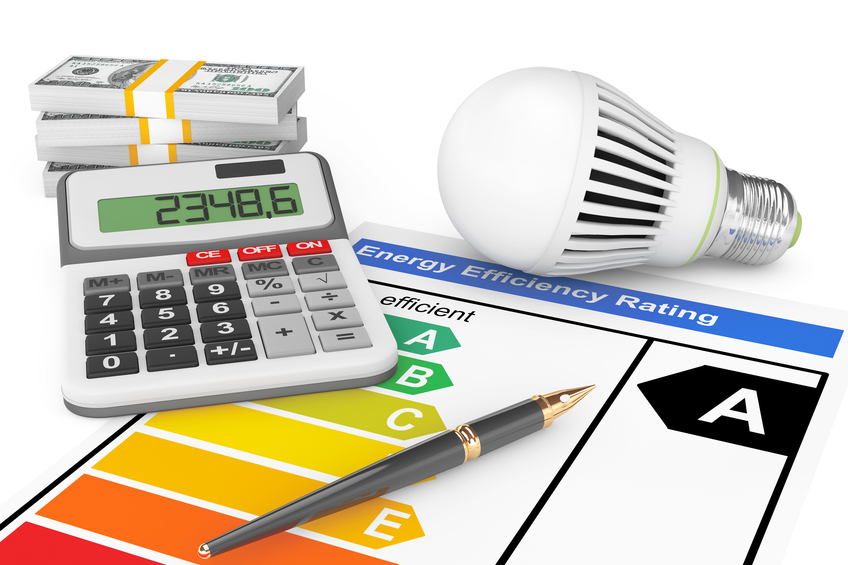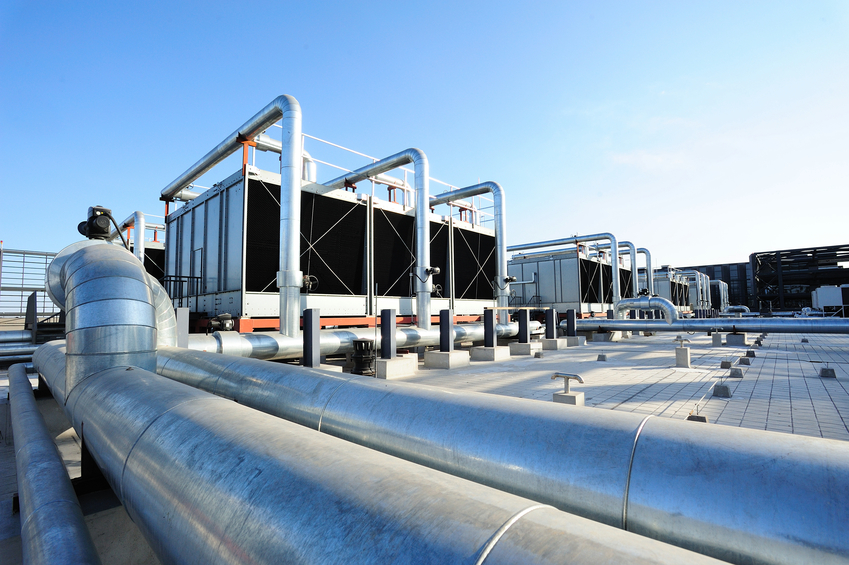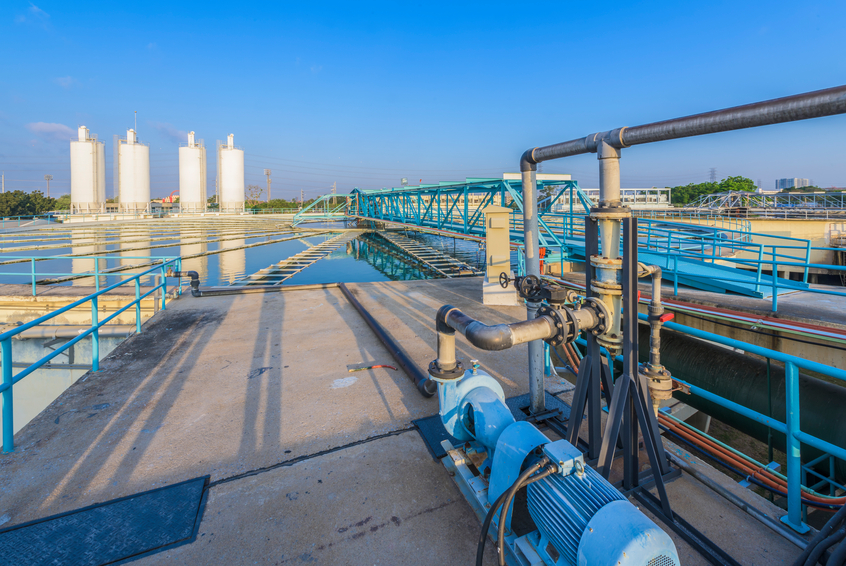New York Energy Efficiency and Ethics 18 PDH Discount Package 2
Courses in this Package
Home Energy Savings: A Practical Approach (M09-001)
LED Troffer Retrofit Lighting and Controls: Best Practices (E01-011)
Cooling Tower Key Components and How to Improve Water Efficiency (M01-018)
Improving Process Heating Systems Performance (M05-026)
Advancing Sustainable Materials Management (C01-021)
Ethical Issue: Deciding if Something is a Gift or a Bribe (LE1-007)

This online engineering PDH course provides information on a wide variety of energy-related topics, ranging from simple weatherization, insulation, heating and cooling system improvements in homes, to installing and maintaining efficient water heaters, home appliances and solar panels.
Every year, a typical family in the United States spends around half of its home energy budget on heating and cooling. Unfortunately, many of those dollars are often wasted, because conditioned air escapes through leaky ceilings, walls and foundations, or flows through inadequately insulated attics, pipes, exterior walls and basements. In addition, many appliances, heating systems and air conditioners aren’t properly maintained, are old and inefficient, compared to models being sold today.
By properly maintaining your existing heating and cooling equipment (or replacing aging units with high-efficiency models), addressing weatherization and insulation issues at your house and getting into the habit of using energy efficiently all the time, you can save 10 to 30 percent (or more) on your utility bills every year. You will also help reduce pollution at utility plants that use fossil fuels to generate electricity.
This 9 PDH online course is applicable to electrical and mechanical engineers as well as energy specialists who are interested in learning more about home energy-saving considerations and the collection of systems that work together to achieve peak energy savings and to increase a home’s overall comfort.
This PE continuing education course is intended to provide you with the following specific knowledge and skills:
- Familiarizing with the major sources of air leaks and energy use in a typical home
- Learning about different sealing and insulating materials, their main characteristics and applications
- Understanding the energy saving considerations for heating and cooling systems
- Learning about a set of energy-related units, ratios and terminologies
- Learning about water heating systems and the different approaches to lowering water-heating costs
- Familiarizing with energy-efficient tips and practices for major home appliances
- Familiarizing with the building blocks of solar PV systems
- Gaining a general overview of contracts, installation, maintenance and monitoring of solar energy systems
Upon successful completion of the quiz, print your Certificate of Completion instantly. (Note: if you are paying by check or money order, you will be able to print it after we receive your payment.) For your convenience, we will also email it to you. Please note that you can log in to your account at any time to access and print your Certificate of Completion.

This online engineering PDH course provides basic information on LED troffer retrofit lighting and controls best practices.
Lighting use constitutes about 20% of the total source electricity consumption in commercial buildings. Most of the lighting in U.S. commercial buildings is provided by fluorescent troffer ceiling fixtures. There are currently over 350 million installed troffers using more than 65 million kWh (the annual energy usage of 6 million U.S. homes).
Retrofitting these fluorescent troffers to light-emitting diode (LED) sources offers the potential for enormous energy savings. As of 2015, only 5% of the troffers in use had LED light sources. At a project level, retrofitting or replacing fluorescent troffers with LEDs can result in energy savings of 20% to 60% and help agencies meet energy-efficiency goals.
This 1 PDH online course is applicable to environmental engineers who are interested in gaining knowledge about LED retrofit kits, TLEDs, and lighting controls best practices.
This PE continuing education course is intended to provide you with the following specific knowledge and skills:
- Familiarizing with the different options of retrofitting existing fluorescent troffer fixtures with LEDs
- Familiarizing with the different types of tubular LEDs and their characteristics
- Gaining a general overview of the features of retrofit kits including installation time requirements, efficacy, and controls
- Learning about the factors to consider when installing new luminaires including existing condition of luminaires, equipment purchase costs, energy savings, installation labor costs, ceiling plenum access, light levels
- Understanding the importance of color characteristics of the light from the troffer and the measurements used to describe lighting
- Learning about the different types of lighting controls and their characteristics
Upon successful completion of the quiz, print your Certificate of Completion instantly. (Note: if you are paying by check or money order, you will be able to print it after we receive your payment.) For your convenience, we will also email it to you. Please note that you can log in to your account at any time to access and print your Certificate of Completion.

This online engineering PDH course provides a basic understanding of cooling towers, describes their key components and provides recommendations on how to improve the water efficiency.
Cooling towers are an integral component of many refrigeration systems, providing comfort or process cooling across a broad range of applications. They are the point in the system where heat is dissipated to the atmosphere through the evaporative process, and are common in industries such as oil refining, chemical processing, power plants, steel mills, and many different manufacturing processes where process cooling is required.
This 1 PDH online course is intended for mechanical and environmental engineers as well as others interested in learning more about cooling towers and how to improve their water efficiency.
This PE continuing education course is intended to provide you with the following specific knowledge and skills:
- Understanding the basic cooling tower terms
- Learning the different types of cooling towers
- Learning the system calculations
- Understanding the factors that limit cycles of concentration
- Knowing the system concerns
- Familiarizing with the treatment options
Upon successful completion of the quiz, print your Certificate of Completion instantly. (Note: if you are paying by check or money order, you will be able to print it after we receive your payment.) For your convenience, we will also email it to you. Please note that you can log in to your account at any time to access and print your Certificate of Completion.

This online engineering PDH course describes basic process heating applications and equipment, and outlines opportunities for energy and performance improvements. It also discusses the merits of using a systems approach in identifying and implementing these improvement opportunities for Fuel-Based and Electric-Based heating systems. Furthermore, it provides recommendations to financially justify process heating improvement projects (System Economics).
Process heating is essential in the manufacture of most consumer and industrial products, including those made out of metal, plastic, rubber, carbon fiber, concrete, glass, and ceramics. Process heating systems are broken into three basic categories: Fuel-Based Process Heating, Electric-Based Process Heating, and Steam-Based Process Heating all of which are discussed in details.
This 5 PDH online course is applicable to mechanical, industrial and process engineers, designers, manufacturers and all personnel involved in the planning, design and installation of process heating systems.
This PE continuing education course is intended to provide you with the following specific knowledge and skills:
- Understanding the basics behind process heating operations
- Familiarizing with the common types of process heating systems and equipment
- Recognizing efficiency opportunities for fuel-based and electric-based heating systems
- Learning how to financially justify process heating improvement projects
Upon successful completion of the quiz, print your Certificate of Completion instantly. (Note: if you are paying by check or money order, you will be able to print it after we receive your payment.) For your convenience, we will also email it to you. Please note that you can log in to your account at any time to access and print your Certificate of Completion.

This online engineering PDH course presents the facts and statistics about the generation and disposition of municipal solid waste (MSW) over time in the United States. It examines the disposing of waste in landfills, recycling, composting, and combustion with energy recovery.
Approximately 262 million tons of MSW was generated in the United States in 2015. Understanding how waste is generated and disposed of is important for managing scarce materials.
This report analyzes MSW trends in generation and management, materials and products, and economic indicators affecting MSW. It also includes a section on the generation of construction and demolition (C&D) debris, which is not a part of MSW, but comprises a significant portion of the non-hazardous solid waste stream.
This 1 PDH online course is applicable to civil, environmental and sustainability engineers and other technical personnel who are interested in gaining a basic understanding of waste management on the individual and household level.
This PE continuing education course is intended to provide you with the following specific knowledge and skills:
- Knowing where MSW comes from and how it is disposed of
- Understanding how to manage materials in order to maximize economic efficiency
- Learning when recycling, composting, and combusting with energy recovery should be used
- Familiarizing with the Sustainable Materials Management (SMM) process
Upon successful completion of the quiz, print your Certificate of Completion instantly. (Note: if you are paying by check or money order, you will be able to print it after we receive your payment.) For your convenience, we will also email it to you. Please note that you can log in to your account at any time to access and print your Certificate of Completion.

This online engineering PDH course will establish, through the presentation of many examples, the principles of distinguishing between a gift and a bribe.
The federal government has formulated detailed rules covering gifts given to executive-branch employees in many situations. The rules are published in the Code of Federal Regulations (CFR) and are illustrated through many examples. Even though the examples are intended for government employees (many of whom are engineers), they also apply to private-sector engineers in similar situations. This course presents selected CFR examples that furnish guidance on the ethics of gift giving in situations that are especially relevant to engineers.
This 1 PDH online course is intended for engineers seeking guidance on distinguishing between ethical gift-giving and bribery.
This PE continuing education course is intended to provide you with the following specific knowledge and skills:
- Familiarizing with definitions of a bribe and a gift
- Knowing the bribe status of a gift based on a personal relationship
- Understanding the conditions under which gifts to spouses are acceptable
- Knowing the need to avoid even the appearance of a gift being a bribe
- Recognizing when gifts involving free attendance at meetings and conferences are acceptable
- Understanding the importance of the cumulative effect of receiving even small gifts on a periodic basis
- Learning the importance of gifts received when on assignment rather than outside of work
Upon successful completion of the quiz, print your Certificate of Completion instantly. (Note: if you are paying by check or money order, you will be able to print it after we receive your payment.) For your convenience, we will also email it to you. Please note that you can log in to your account at any time to access and print your Certificate of Completion.